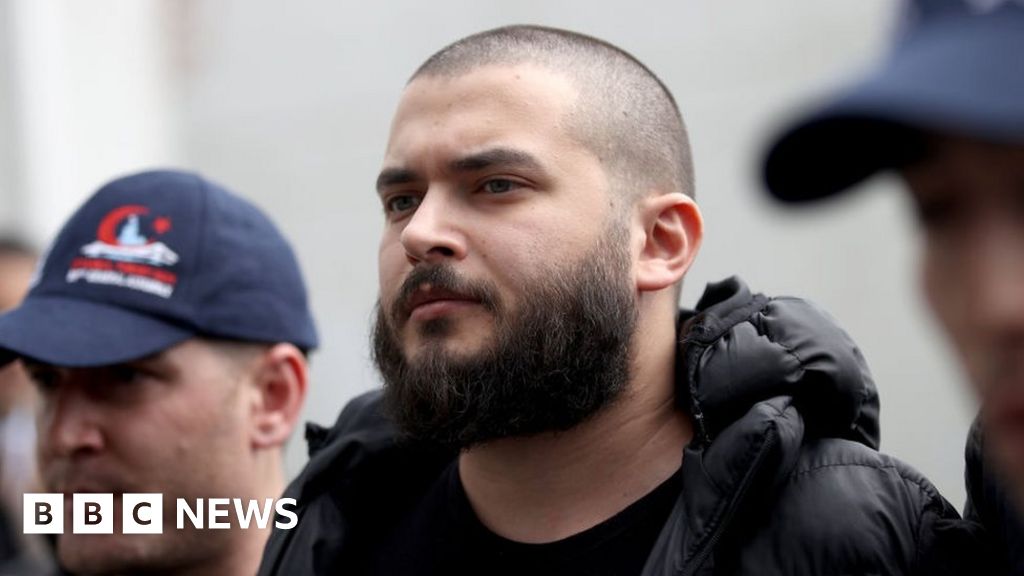Receive free Kim Jong Un updates
We’ll send you a myFT Daily Digest email rounding up the latest Kim Jong Un news every morning.
One of the last times the North Korean dictator Kim Jong Un travelled abroad on his favoured green-and-yellow armoured train was for a 60-hour journey in 2019 to see then US president Donald Trump for talks in Vietnam.
That long trip, however, was short on success. The talks collapsed and within months Pyongyang was hurling abuse at Trump in arcane English, saying the US leader was a “dotard”. In coming days, the leader is set to travel again, this time to Vladivostok in the Russian far east to meet President Vladimir Putin. The topic under discussion? Selling ammunition to Moscow for its war in Ukraine. Kim is expected to once more take his train — believed to include more than 20 armoured cars and a special cabin for the general secretary, as he is known, with a bright white interior. But this time, a successful outcome is virtually assured.
For the dictator — believed to be 39, educated partly in Switzerland and professing a love for American basketball — the mission is typical of an unblinking realpolitik. Kim’s early years in power were characterised by a brutal crackdown in which his half brother, Kim Jong Nam, was murdered with a nerve agent and his uncle, Jang Song Thaek, executed for treason by firing squad. He also moved to weaken the power of top generals who saw him as an unknown quantity after the death of his father, Kim Jong Il.
Having made his mark, Kim is now pursuing the byeongjin ideology — a dogma that promotes the dual development of the economy and nuclear weapons. The aim is to develop a nuclear arsenal that would shift the balance of power in north Asia and potentially threaten the US. In this context, Pyongyang’s growing alignment with Moscow raises the risks of instability in one of the world’s most dangerous regions. “A Russia-North Korea axis complicates the security picture both in Ukraine and on the Korean peninsula,” wrote Victor Cha and Ellen Kim at CSIS, a Washington-based think-tank.
It is not yet clear what a deal between North Korea and Russia would entail. Pyongyang could offer ammunition, multiple rocket launchers and short-range ballistic missiles — all of which would help Moscow repel Kyiv’s counteroffensive. In return, Moscow might offer grain, oil and military technology, as well as hard currency as payment. Russia could also be prevailed upon to provide North Korea with highly sensitive military technologies that would threaten its neighbours, notably South Korea and Japan. “Russia-North Korea co-operation may extend beyond conventional arms deals and food/energy assistance, possibly to advanced technology for satellites, nuclear-power submarines and ballistic missiles,” Cha and Kim added.
In Seoul — which ended a war with the North, then led by Kim’s grandfather, Kim Il Sung, in 1953 with an armistice but not a formal peace treaty — anxiety is running high. “It is fair to say that a second cold war has already begun,” said Kim Jaechun, a professor at Sogang University in Seoul. “North Korea, China and Russia have become the new axis of evil, all being states run by dictators and threatening the democratic international order.”
Thanks to Kim’s penchant for isolationism, sealing off the country to resist the Covid-19 pandemic was second nature. But after a marathon three-and-a-half year lockdown, air travel has only recently resumed, while most of North Korea’s 26mn people are believed to be unvaccinated. The economic toll of the lockdown is understood to be profound, intensifying Kim’s need to sell weapons to Russia.
The expected meeting between Kim and Putin on the sidelines of the Eastern Economic Forum in Vladivostok also marks a wider military entente. In July, Russian defence minister Sergei Shoigu visited Pyongyang and for a tour of a weapons exhibition that featured combat and surveillance drones and the regime’s newest intercontinental ballistic missiles. Pyongyang has explicitly supported Moscow’s war in Ukraine, vetoing a UN resolution condemning the invasion, recognising the Russian occupation of Donetsk and Luhansk, and even shipping arms to the Wagner group of mercenaries fighting for the Kremlin in Ukraine.
But in spite of Kim’s clear courting of Russia — and Moscow’s reciprocal demonstrations of interest — a question mark hangs over China’s view of its two neighbours’ waxing affinity. Although China maintains close diplomatic ties with both North Korea and Russia, its diplomats privately express reservations about the course both countries are on. They also note that one of Beijing’s priorities is to recover its relations with European powers and prevent further deterioration in ties with the US. “Unlike Russia, China doesn’t want to see its relations with the US deteriorate so it is reluctant to expand military co-operation with North Korea,” says Cheong Seong-Chang at the Sejong Institute in South Korea.
Kim is well used to the shifting sands of diplomatic allegiances. In the long run-up to their summit in 2019, Trump first referred to him on Twitter in 2017 as “Little Rocket Man” — a nickname that Kim did not appreciate. By 2018, however, Trump had changed his tune, calling Kim a “worthy negotiator”. Kim can have few illusions that the Kremlin’s latest cozy embrace of his “hermit kingdom” is anything more than transactional: it is about securing the weapons that command respect in a dangerous neighbourhood.
james.kynge@ft.com, junga.song@ft.com
Credit: Source link











